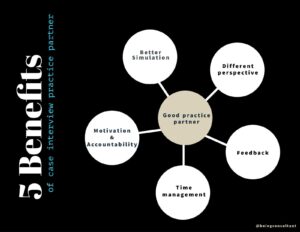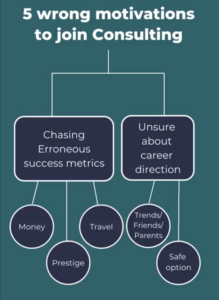The Pillars of Expertise in Management Consulting: Navigating Your Path to Specialization
- Uncategorized
- carousel
Table of Contents
In the dynamic world of management consulting, expertise is the currency that drives success. As firms tackle increasingly complex business challenges, the demand for specialized knowledge has never been higher. This article delves into the four primary categories of experts within management consulting firms, offering insights into each specialization and guidance on how to cultivate your expertise in these areas.
Introduction
Management consulting is a field that thrives on knowledge, insight, and the ability to navigate complex business landscapes. As the industry evolves, so too does the nature of expertise required to excel. Whether you’re a seasoned consultant looking to refine your niche or an aspiring professional planning your career trajectory, understanding the various categories of expertise can help you chart a course toward success and impact.
1. Industry Experts: The Sector Specialists
Industry experts are the go-to professionals for clients seeking deep, sector-specific insights. These consultants possess an intimate understanding of the nuances, trends, and challenges within particular industries.
Key Characteristics:
- Deep knowledge of industry-specific regulations and compliance requirements
- Understanding of market dynamics, competitive landscapes, and industry-specific KPIs
- Ability to forecast industry trends and their potential impacts
Common Industries for Specialization:
- Healthcare
- Technology
- Finance
- Energy
- Retail
- Manufacturing
How to Develop Industry Expertise:
- Immerse yourself in industry publications, reports, and conferences
- Seek projects within your chosen industry to gain hands-on experience
- Network with industry professionals and thought leaders
- Consider obtaining industry-specific certifications or advanced degrees
2. Functional Experts: The Business Function Maestros
Functional experts specialize in specific areas of business operations. They bring deep knowledge of best practices, methodologies, and innovations within their chosen function
.
Key Characteristics:
- In-depth understanding of functional best practices and emerging trends
- Ability to optimize specific business functions across various industries
- Skills in implementing and managing functional transformations
Common Functional Areas:
- Strategy
- Operations
- Finance
- Human Resources
- Marketing
- Supply Chain Management
How to Develop Functional Expertise:
- Pursue relevant professional certifications (e.g., CFA for finance, SHRM for HR)
- Gain diverse experience within your chosen function across different industries
- Stay updated on the latest tools and technologies specific to your function
- Contribute to thought leadership in your functional area through articles or speaking engagements
3. Subject Matter Experts: The Niche Knowledge Navigators
Subject Matter Experts (SMEs) possess specialized knowledge in specific, often cutting-edge areas of business. They are at the forefront of emerging trends and complex business challenges.
Key Characteristics:
- Deep expertise in niche, often interdisciplinary areas
- Ability to guide clients through complex, emerging business challenges
- Often involved in pioneering new methodologies or approaches
Common Subject Matter Areas:
- Digital Transformation
- Sustainability and ESG (Environmental, Social, and Governance)
- Mergers and Acquisitions
- Cybersecurity
- Artificial Intelligence and Machine Learning
- Change Management
How to Develop Subject Matter Expertise:
- Focus on emerging trends and technologies within your chosen area
- Engage in continuous learning through specialized courses and certifications
- Participate in or lead research initiatives in your area of expertise
- Build a network of fellow experts and collaborate on innovative projects
4. Methodology Experts: The Process Perfectionists
Methodology Experts are skilled in specific consulting frameworks and approaches. They excel at applying these methodologies to solve diverse business problems across industries and functions.
Key Characteristics:
- Mastery of specific consulting methodologies and their applications
- Ability to adapt and combine methodologies to address unique client challenges
- Often involved in training and developing other consultants in these methodologies
Common Methodologies:
- Six Sigma
- Agile
- Design Thinking
- Lean Management
- Balanced Scorecard
- PRINCE2 (Projects IN Controlled Environments)
How to Develop Methodology Expertise:
- Obtain certifications in your chosen methodologies (e.g., Six Sigma Black Belt, Agile Scrum Master)
- Gain practical experience by applying these methodologies in diverse projects
- Stay updated on evolving best practices and new applications of your methodologies
- Consider becoming a trainer or coach in your chosen methodology
The Intersection of Expertise: The Power of Combination
While these categories provide a framework for understanding expertise in consulting, it’s important to note that the most impactful consultants often combine elements from multiple areas. For example, an industry expert in healthcare who also specializes in digital transformation can offer uniquely valuable insights to clients navigating technological disruption in the medical field.
As you develop your expertise, consider how you might create a unique value proposition by combining knowledge from different categories. This interdisciplinary approach can set you apart in the competitive world of management consulting.
Conclusion
In the ever-evolving landscape of management consulting, expertise is your greatest asset. Whether you choose to specialize as an Industry Expert, Functional Expert, Subject Matter Expert, or Methodology Expert – or a combination thereof – the key lies in continuous learning, practical application, and staying ahead of industry trends.
Remember, developing true expertise is a journey, not a destination. Embrace opportunities to deepen your knowledge, broaden your experience, and refine your skills. By doing so, you’ll not only advance your consulting career but also position yourself to make a significant impact on the clients and industries you serve.
As you navigate your path to specialization, stay curious, remain adaptable, and never stop seeking new challenges. The world of management consulting is rich with opportunities for those who are committed to excellence and continuous growth in their chosen areas of expertise.






